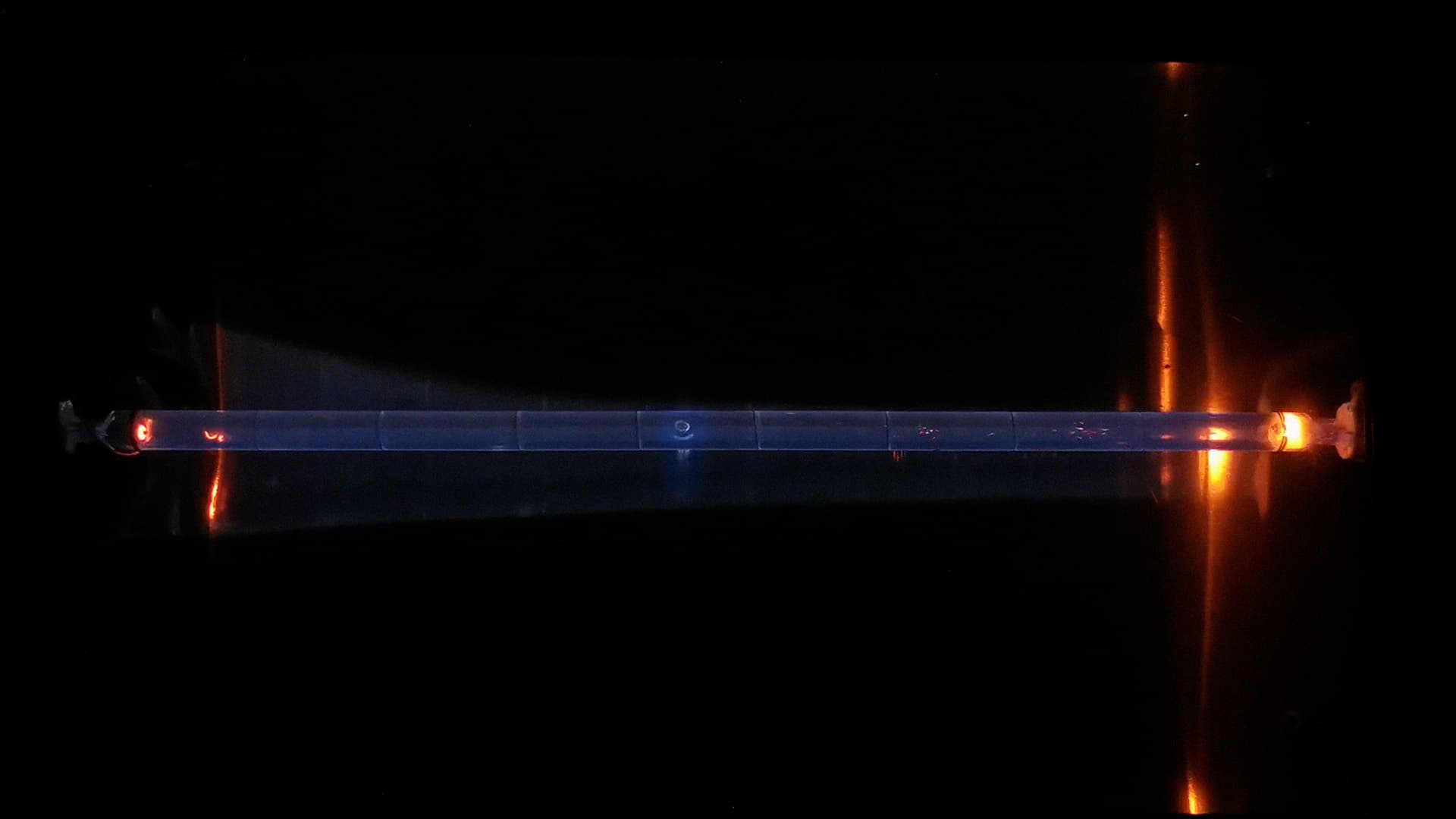
Theresa Baumgartner
Theresa Baumgartner is a Berlin-based visual artist and award winning lighting designer whose work transcends traditional
boundaries, merging audiovisual performance, installation art, and experimental film.
Drawing from influences as diverse as experimental noise, punk, painting, and sculpture, her
artistic practice is characterized by a visceral blend of disorder and experimentation,
underpinned by painterly and sculptural sensibilities.
Baumgartner's immersive installations often explore alternate realities, employing space and
light to craft environments that encourage audiences to reflect on their perceptions of reality.
Recent projects include her contribution to After Images at the Julia Stoschek Foundation,
where her site-specific light interventions—such as Waiting for the Engineer, The Breaking
and If I Must Die, You Must Live to Tell My Story—reflected on absence, censorship, and
narrative collapse.
Her work in contemporary dance includes lighting design for Wayne McGregor’s Deepstaria,
a production hailed by The New York Times as the Best Contemporary Dance Piece of the
Year. Inspired by deep-sea biology and cosmic landscapes, the piece used ultra-dark
materials and choreographed lighting to alter perception and evoke abyssal depth. She also
designed the lighting for McGregor’s We Humans Are Movement, at La Biennale Danza
2024 alongside Ben McCullen Williams and Benji B, weaving sound, motion, and light into a
dynamic sensory experience.
As the first Visual Artist in Residence for the Biennale Musica in 2023 and 2024, she
created stage and lighting designs for immersive sound installations, exploring spatial
listening through architectural light.
In the realm of audiovisual installation art, Baumgartner’s ongoing collaboration with field
recordist Chris Watson includes Ocean Sounds at the Gasometer Oberhausen, where
natural marine recordings were transformed into a large-scale environmental experience
within one of Europe’s most monumental industrial spaces.
Her works, such as INFINITE II (commissioned by the Julia Stoschek Collection), Not Yet
(with Bendik Giske at the Munch Museum, Oslo), and Seaphony (with Chris Watson and
Tony Myatt), delve into themes of vulnerability, environmental consciousness, and the
human condition.
Her collaborative projects are noteworthy, including her role in the visual scenography for
Jlin's Black Origami Tour and the Emmy-winning Stranger Things score by Kyle Dixon and
Michael Stein. Additionally, she created the stage design for Hildur Guðnadóttir's Chernobyl
OST, which earned the 2020 Opus Klassik Award for innovative live performance.
Baumgartner is also the co-founder of Bestfilmsforever (BFF), a collective dedicated to
supporting FLINTA* and LGBTQIA+ individuals in the tech sector, advocating for greater
inclusivity in the film industry.
Baumgartner's artistic endeavors continue to challenge and redefine the intersections of
visual art, performance, and technology, offering audiences profound and immersive
experiences that resonate on both emotional and intellectual levels.